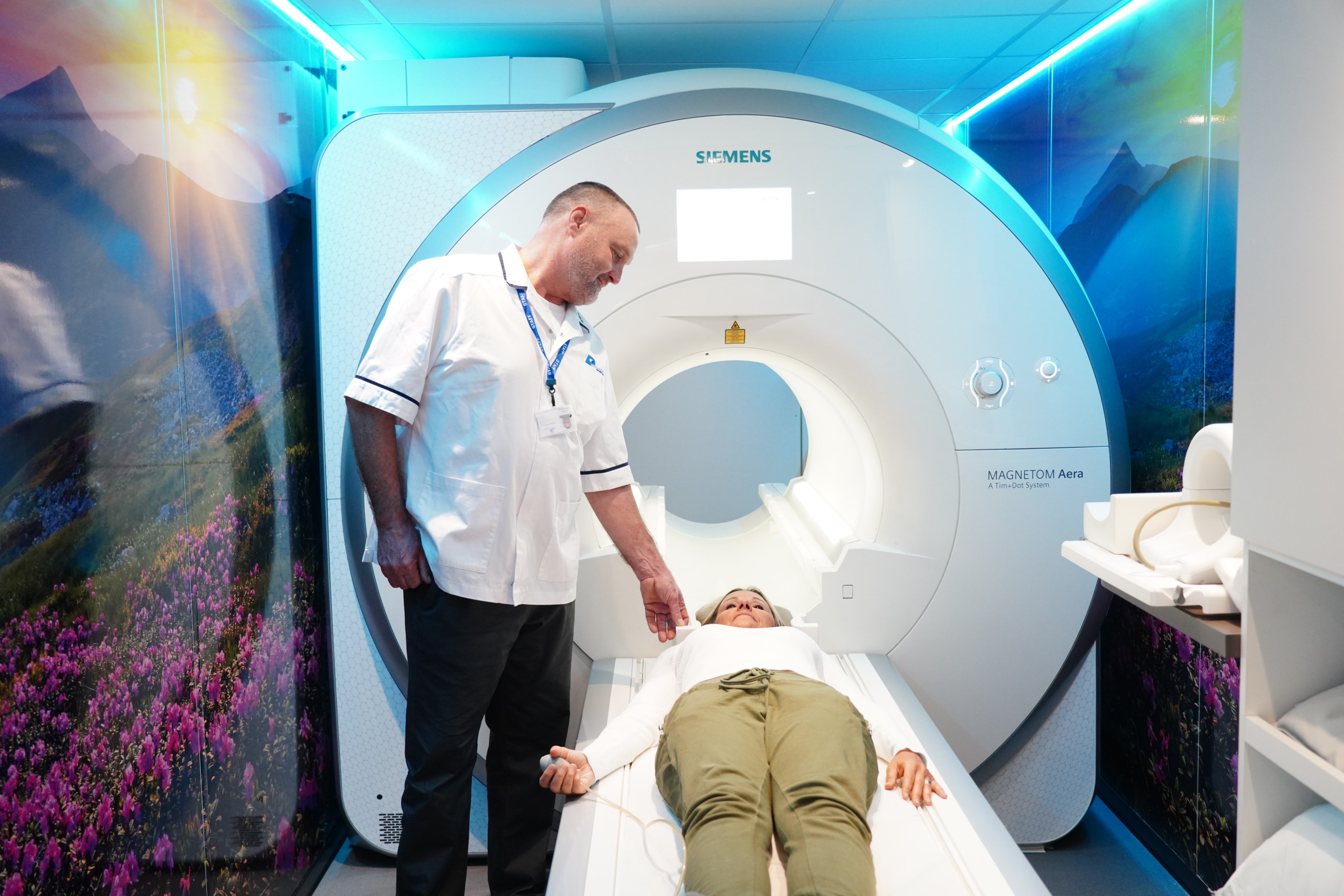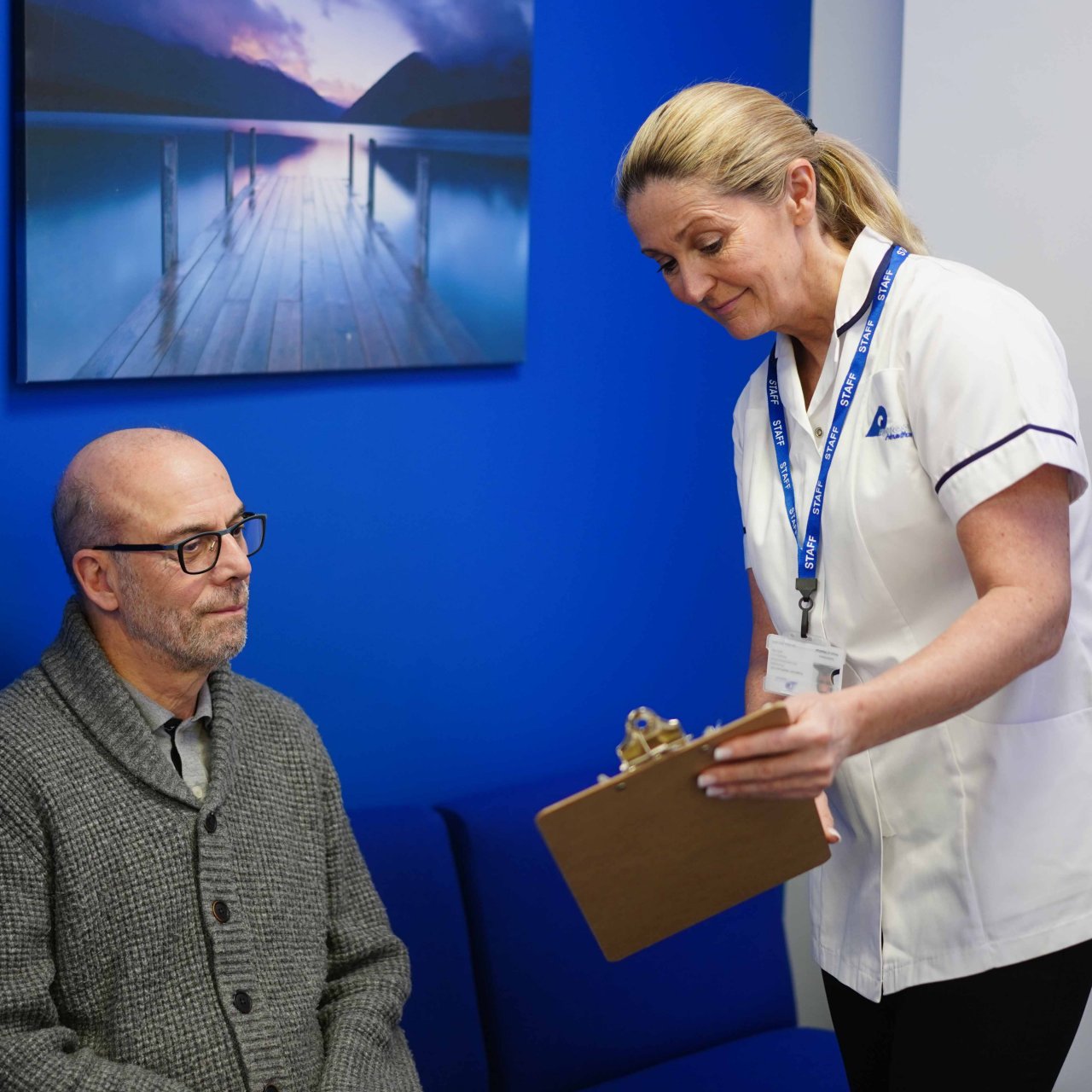Our accredited Radiologists are experts in their field and work within their sub-speciality areas of interest.
Our staff are highly trained to help you through every step of your journey to make the experience a positive one.
We offer fast access and a prompt turnaround time for reports.
What is an MRI scan?
Magnetic Resonance Imaging (MRI) is a powerful diagnostic tool and frequently helps to determine the most suitable treatment option and management plan.MRI can be used in the diagnosis of
- most ailments of the brain and certain ENT conditions (ear, nose and throat)
- musculoskeletal problems and sports injuries
- spinal conditions
- gynaecology problems (female pelvic)
- some abdomen problems (gastrointestinal tract conditions)
- vascular abnormalities
- prostate problems
- soft tissue problems
What preparation is required for an MRI scan?
You do not need to fast or follow a special diet unless specified. MRI scanners use powerful magnetic fields. Metal items can distort MRI images and may be a safety hazard if they become attracted to the magnetic field so, before your scan, you must remove all external metallic and electronic items. This includes items such as watches, jewellery, hairpins, keys, coins, mobile phones and make-up such as mascara or eyeliner which may contain certain metal products.You should also remove any hair pieces with clips or wigs, dentures, make-up, spectacles and hearing aids you are wearing. All piercings must be removed. You should wear clothing without metal zips, fasteners, buttons, belts or buckles. If you are having a head or neck examination, please have dry, clean hair and do not wear hair products.
What do we need to know before the MRI scan?
It is, however, very important that you contact Patient Services on 0161 929 5679 / 0330 058 4142 prior to your appointment if you have any metal implants in your body such as a pacemaker or aneurysm clip, or if you are pregnant.What happens at the appointment and during the MRI scan?
When you arrive for your appointment at our clinic, our Radiographer will provide you with a full briefing on what will happen during your appointment. Typically, an appointment will commence with a safety questionnaire in which you will provide consent for the scan to go ahead.Once you have received your safety briefing, you may be asked to change to a gown which we will provide. During this time, it is important to also remove any jewellery or other metal objects such as hair clips.
You will lie on a motorised bed and the Radiographer will position the area being scanned at the centre of the cylinder. In some cases, a coil, which contains a receiver to pick up the signals sent out by your body, will be placed over the area be scanned. This enhances the quality of the image.
Our Radiographer will operate the machine from a separate room, but you will still be able to communicate via an intercom system. They will also be able to see you on a television monitor throughout the examination.
In certain circumstances a contrast agent needs to be used in the MRI examamination to enable certain tissues and blood vessels to show up more clearly and in greater detail. When contrast is needed, the Radiographer will insert an intravenous line (IV) into a vein in your hand or arm. The contrast agent can sometimes cause side effects such as sickness, skin rash, headache or dizziness. These side effects are usually mild and do not last very long. The MRI scanner makes a loud tapping noise in certain types of scan. You will be given ear phones with music or ear plugs to wear. An emergency bell will also be given to you if you need to call the Radiographer during the procedure.
After the MRI scan?
After the MRI scan has been completed, the images will be briefly checked to ensure that they are of good quality and can be used for reporting.There are no restrictions on normal activity. You can eat and drink normally, drive and return to work immediately after the scan.
A Consultant Radiologist, who has been trained in MRI scan analysis, reviews the results of your MRI scan. The results cannot be given to you on the day because the analysis takes a relatively long time and can include a comparison with any previous MRI scans (if they have been provided).
Once the Radiologist has analysed the images they will write a report and send it to your referring clinician so you can discuss the results. This process can take up to 10 working days.
Frequently asked questions
An MRI scan can be used to examine the brain for:-
- tumours
- multiple sclerosis
- changes that have occurred after bleeding in the brain to discover if the brain tissue has suffered a lack of oxygen after a stroke
Examining the heart and large blood vessels in the surrounding tissue make it possible to detect:-
- heart defects that have been developing since birth
- changes in the thickness of the muscles around the heart following a heart attack
An MRI scan may be used to examine:-
- the spinal chord
- joints
- soft tissue parts of the body
- female pelvic problems
- ailments of the gastro-intestinal tract
- certain ear, nose and throat problems
- musculoskeletal problems
The scan takes about 25-40 minutes.
For most people, there is no danger associated with having an MRI scan. It is, however, very important that you tell your doctor and our team if you have any metal implants in your body. The Radiographer will therefore ask for your relevant medical history and whether you have any of the following:
- pacemakers
- implanted insulin pumps
- aneurysm clips
- vascular coils and filters
- heart valves
- ear implants
- surgical staples and wires
- shrapnel
- bone or joint replacements
- metal plates, rods, pins or screws
- contraceptive diaphragms or coils
- penile implants
- permanent dentures
It is also important to tell a member of the staff if you are pregnant or if you believe there is a possibility you are pregnant.
A Radiologist, who has been trained in MRI scan analysis, reviews the results of your MRI scan. The results cannot be given to you on the day because the analysis takes a relatively long time and can include a comparison with any previous MRI scans.
It is important that you remain still during your MRI scan as any movement causes the pictures to blur. This then makes it difficult for the Radiologist to interpret the scan results. In addition, the MRI scan is often focused on a specific part of the body. If you move, the area that is being examined may no longer be in the correct position.
Both MRI and CT scans provide detailed pictures of areas of the body that used to be inaccessible by conventional X-rays. They use a sophisticated computer system to make cross-sectional pictures of areas of the body being scanned. The major difference between CT and MRI, is that an MRI uses a large magnet and radio waves to produce images, whereas a CT scanner uses X-rays. There is, therefore, no exposure to X-rays in an MRI scan.
Because MRI scanning is very sensitive to movement during the scanning procedure, CT scanning can be preferable in some circumstances if the patient is unable to stay still.
The more information that our Radiologist has when he/she reviews the results of your MRI scan, the more specific the interpretation will be. Correlations with other MRI scan results are helpful.
As there is little room inside the tunnel, people who suffer from severe claustrophobia sometimes have problems with being in the MRI scanner. Please do consult with your referrer before the day of your appointment. If necessary, you may be prescribed medication to calm you down before the scan.
If our Radiographers know you are nervous, they will take extra care in making sure you are comfortable during your MRI scan. The Radiographers can see you at all times through a large window and a television monitor and will also be able to talk to you and listen to you through an intercom system during the scan.
Keeping your eyes closed throughout the scan can sometimes help.
It is recommended that you dress in light cotton clothing which does not contain metal such as zippers, metal buttons etc. You will be offered a cotton robe which you can wear for the examination if you arrive with inappropriate clothing.
You’re welcome to bring a friend or a relative with you. In special circumstances we can allow your friend or relative to accompany you into the MRI scanning room. They will have to undergo the same MRI screening questionnaire as you to make sure they are safe to enter the MRI environment.
A referral is not always required. Please contact us on 0161 929 5679/ 0330 058 4142 to discuss.








